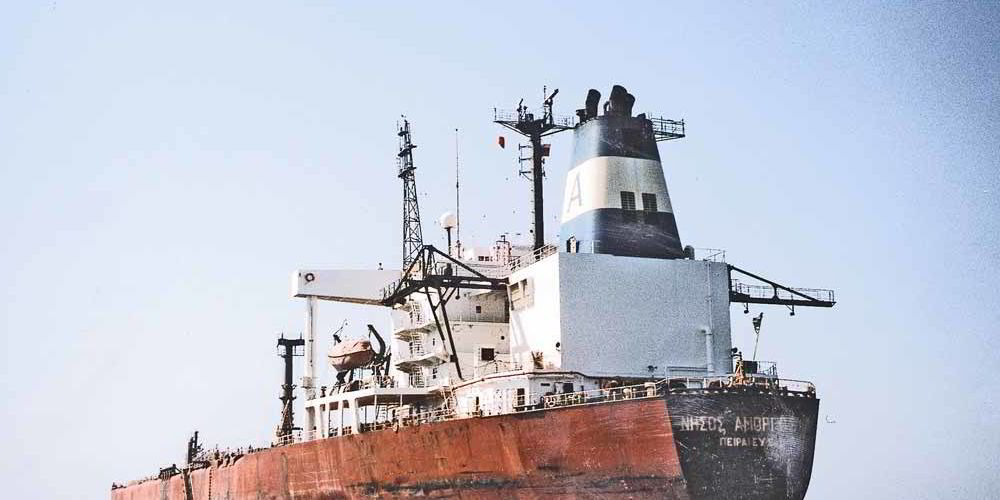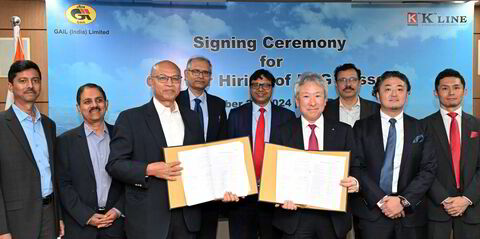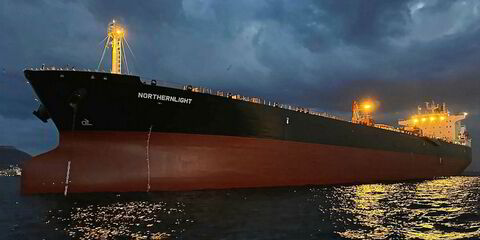Gard is to challenge the IOPC Funds decision to wind up its 1971 fund before outstanding issues relating to a spill in Venezuelan waters by the 86,400-dwt Greek controlled Nissos Amorgos (built 1988) are finally resolved.
The Gard protection and indemnity club is facing two duplicated claims of $60m over the spill, with a final judgment from Venezuela’s Supreme Court upholding the validity of the compensation sought.
The Nissos Amorgos controlled by the Alafouzos company, Glafki (Hellas), grounded in the Maracaibo Channel in 1997 spilling about 3,600 tonnes of crude, so at the time it was just another unremarkable pollution incident.
But it has proved the most intractable of cases to settle with the IOPC Funds decided last year that it would press ahead with winding up the 1971 Fund which ceased to be in force in 2002.
Gard’s action is supported by the 12 other clubs in the International Group P&I cartel. There are also four other 1971 fund compensation cases yet to be finally resolved although the Nissos Amorgos is by far the largest and most controversial.
There has been a lot of litigation over the Nissos Amorgos spill in the Venezuelan courts but the issue is now heading for the High Court in London as a result of Gard initiating proceedings against the 1971 fund.
The Nissos Amorgos’ master, Konstantinos Spiropoulos, was held on criminal charges for over a year with the casualty also achieved notoriety for the lengthy detention of the ship.
There are a whole raft of issues about what went wrong including the responsibility of Venezuela for the condition of the Maracaibo Channel, the theoretical model used to calculate the Venezuelan claim and how the arrangements for reconciling the payments of Gard and the IOPC Funds should have worked.
About $25m of pollution claims have been settled by Gard and the IOPC Funds but the Venezuelan Supreme Court judgment remains outstanding.
Gard won an early ruling that ship was entitled to limit liability under the civil liability convention to $7.3m but this was subsequently overturned by the Venezuelan courts.
The total compensation potentially available under the civil liability and fund conventions is about $83m.
But the 1971 Fund has only $8m or so left in the kitty and as it ceased to be in force well over a decade ago there is no possibility of raising further funds.
The IOPC Funds though a London based organisation funded by the oil industry is established under international conventions so there may well be public law and jurisdictional issues raised by Gard’s move.
IOPC Funds director, Jose Maura, told TradeWinds at the end of last year that he needed to report to a meeting called for May on ways of winding up the 1971 despite the objections of Gard and the other P&I clubs.
“Gard very much regrets that these proceedings have become necessary, but unfortunately we believe we are left with no choice,” said Gard senior vice president, Sara Burgess.
“The International Group does not agree with the views which have been expressed by the 1971 Fund as to its obligations in the Nissos Amorgos incident. The Group fully supports Gard in bringing these proceedings," added Colin Williams, the Steamship Mutual executive who chairs the International Group’s pollution sub-committee.
With such a lot of money involved, it is also hard to see any room for compromise.
Room for compromise between the IOPC Funds and Gard appears very limited especially as a relatively large sum is involved but there is a potential for the dispute to get a lot worse.
Venezuela is, one of the top 10 oil-exporting countries and TradeWinds reported last year that potential extreme outcomes included ships insured by Gard facing problems trading to Venezuela.
The Nissos Amorgos is now BW Offshore’s FPSO, BW Joko Tole, and is under long term contract to work off Indonesia but still has P&I cover from Gard.



